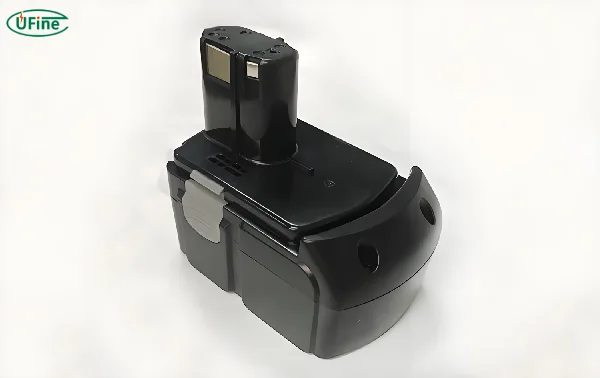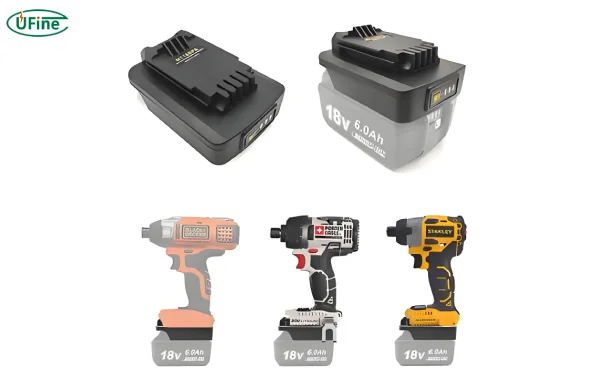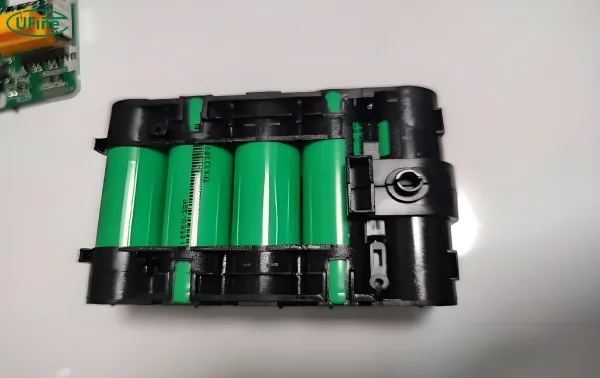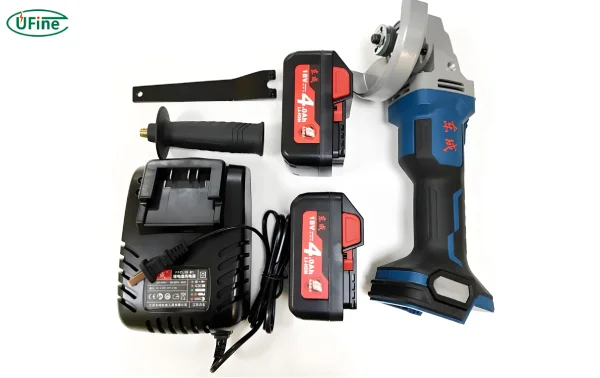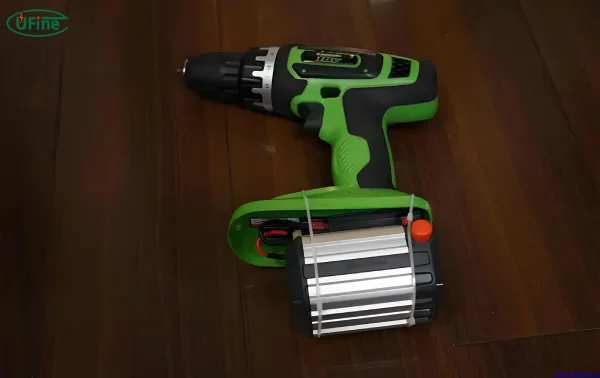In today’s world, portable power is essential. One battery type that stands out is the 18V battery. Whether you’re a DIY enthusiast or a professional contractor, understanding this battery can enhance your tool usage and efficiency. In this comprehensive guide, we will explore everything about 18V batteries, from their types and charging methods to their applications and lifespan. Let’s get started!
Part 1. What is an 18V battery?
An 18V battery is a type of rechargeable battery that provides 18 volts of power. This voltage level is particularly popular in the world of power tools. It’s known for delivering a robust and consistent energy supply, making it ideal for demanding tasks. You’ll often find these batteries in cordless drills, saws, and other power tools that require a reliable source of power.
The 18V battery strikes a balance between power and efficiency. It offers enough voltage to handle heavy-duty tasks while remaining compact and manageable. This makes it a favorite choice for both professionals and hobbyists.
Part 2. 18V battery types
There are several types of 18V batteries available, each with its unique characteristics. Here’s a closer look at the most common types:
Lithium-Ion (Li-ion) 18V Battery
Lithium-ion batteries are perhaps the most popular type of 18V battery. They are lightweight and have a high energy density, which means they can store a lot of power without adding much weight to your tools. Additionally, Li-ion batteries have a low self-discharge rate, so they hold their charge well when not in use.
Nickel-Cadmium (NiCd) 18V Battery
Nickel-cadmium batteries have been around for a long time. They are known for their durability and ability to perform well in harsh conditions. However, they are heavier than Li-ion batteries and have a higher self-discharge rate. Despite these drawbacks, NiCd batteries are still used in many applications due to their robustness.
Nickel-Metal Hydride (NiMH) 18V Battery
Nickel-metal hydride batteries offer a middle ground between Li-ion and NiCd batteries. They have a decent capacity and are more environmentally friendly than NiCd batteries. While they may not have the same energy density as Li-ion batteries, they are still a viable option for many tools.
Part 3. 18V battery charging voltage
Charging an 18V battery requires a specific voltage. Typically, the charging voltage needs to be slightly higher than the battery’s nominal voltage to ensure a full charge. For an 18V battery, a charger that delivers around 20 volts is often used. This allows the battery to charge effectively and efficiently.
It’s crucial to use the right charger for your battery type. Using an incorrect charger could lead to overcharging or undercharging, which can damage the battery or reduce its lifespan. Always follow the manufacturer’s recommendations for charging.
Part 4. 18V battery charger
Choosing the right charger for your 18V battery is essential. A good charger will match the battery type and provide the correct voltage and current. Many modern chargers come with smart features that protect the battery during charging.
Smart Chargers
Smart chargers are designed to optimize the charging process. They can detect the battery’s state and adjust the charging rate accordingly. Features like automatic shut-off prevent overcharging, which can extend the battery’s lifespan. Fast charging options are also available, allowing you to charge your battery quickly when needed.
Compatibility
Ensure that your charger is compatible with your battery type. Some chargers are designed specifically for Li-ion batteries, while others may work with NiCd or NiMH batteries. Using the wrong charger can lead to inefficient charging and potential damage.
Part 5. Charging and maintenance
Proper charging and maintenance are key to maximizing the lifespan of your 18V battery. Here are some tips to keep your battery in top condition:
Charging Tips
- Avoid Full Discharge: Try not to let your battery completely discharge. Recharge it when it reaches a low level to maintain its health.
- Use the Right Charger: Always use a charger that matches your battery type and specifications.
- Monitor Charging: Keep an eye on the charging process and avoid leaving the battery on the charger once it’s fully charged.
Maintenance Tips
- Store Properly: Store your battery in a cool, dry place when not in use. High temperatures can degrade its performance.
- Regular Checks: Inspect your battery regularly for any signs of damage or wear. Replace it if necessary to ensure safety and efficiency.
- Clean Contacts: Keep the battery contacts clean to ensure a good connection with the tool or charger.
Part 6. 18V battery applications
The versatility of the 18V battery makes it suitable for a wide range of applications. Here are some common uses:
Power Tools
The most common application is in power tools. From drills and saws to sanders and impact drivers, the 18V battery provides the power needed for various tasks. Its portability and efficiency make it a favorite among professionals and DIYers alike.
Garden Equipment
Many garden tools, such as trimmers and blowers, also use 18V batteries. They offer the freedom to move around without the hassle of cords, making gardening more convenient and enjoyable.
Household Appliances
Some household appliances and gadgets, like vacuum cleaners and portable speakers, utilize 18V batteries. Their reliable power output ensures these devices run smoothly and effectively.
Part 7. How long does an 18V battery last?
The lifespan of an 18V battery depends on several factors, including usage patterns and maintenance. On average, these batteries can last between two to three years with regular use. The number of charge cycles also affects longevity, with most 18V batteries offering 300 to 500 charge cycles.
Proper care can significantly extend the battery’s life. By following good charging practices and avoiding extreme temperatures, you can ensure your battery remains in top condition for as long as possible.
Part 8. What battery can replace the 18V battery?
When looking to replace an 18V battery, it’s important to find a compatible alternative that meets your tool’s requirements. Here are some options to consider:
Compatible Battery Types
-
Higher Capacity 18V Batteries
- Some manufacturers offer higher capacity versions of their standard 18V batteries. These provide longer runtimes while maintaining compatibility with your tools.
-
20V Max Batteries
- Many brands offer 20V max batteries designed to work with existing 18V tools. They often fit the same battery slots and offer slightly increased power.
-
Adaptable Battery Systems
- Some brands have adaptable battery systems that allow you to use different voltage batteries with the same tools through adapters.
Key Considerations
- Brand Compatibility: Stick to the same brand when possible, as batteries are often designed to work best with their respective tools.
- Voltage Matching: Ensure the replacement battery has a similar voltage to prevent performance issues.
- Physical Fit: Check that the replacement battery fits securely in the tool’s battery compartment.
By considering these factors, you can find a suitable replacement for your 18V battery that ensures optimal performance and longevity.
Part 9. Conclusion
In conclusion, the 18V battery is a versatile and reliable power source for a wide range of applications. By understanding its types, charging requirements, and proper maintenance, you can make the most of this powerful tool. Whether you’re powering a drill, a garden trimmer, or a household gadget, the 18V battery offers efficiency and convenience. With the right care, it can provide years of dependable service, making it an indispensable part of your toolkit.
Related Tags:
More Articles

How to Choose the Best Floor Scrubber Battery for Commercial Cleaning?
Selecting the ideal floor scrubber battery ensures a long runtime, rapid charging, and minimal maintenance for efficient commercial cleaning operations.
Battery for Blower vs Battery for Leaf Vacuum: Which One Should You Choose?
Battery for blower vs leaf vacuum—learn the key differences in power, fit, and runtime to choose the right battery for your outdoor tool needs.
How to Choose the Right Battery for Blower?
Choosing the right blower battery? Consider voltage, capacity, chemistry & usage. This guide helps match the best battery for peak performance.
How to Choose the Best Insulated Battery Box for Lithium Batteries?
Choosing the Best Insulated Battery Box for Lithium Batteries? Discover key factors such as size, material, and safety for optimal protection and performance.
7 Critical Elements on a Lithium Battery Shipping Label
What must be on a lithium battery shipping label? Learn 7 key elements to ensure safety, legal compliance, and correct handling across all transport modes.
